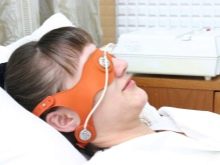Fear of workflow, responsibility, employment in a new place makes some avoid professional activities. Sometimes an unjustified exaggeration of potential danger begins, and then fear gradually develops into a phobia. To begin treatment, it is necessary to understand the causes of the horror of labor.
Features
The overwhelming fear of doing work that requires certain skills, knowledge, skills and professionalism is called ergofobiya. The word is translated from the Greek language as “fear of work” (from Greek. Ergon work + phobos fear). Sometimes it is called ergoziophobia.
Some believe that the fear of work arises from elementary laziness. This is not true. A phobia differs from laziness by raising inexplicable anxiety before fulfilling an assignment because of the fear of doing something wrong. It greatly complicates the lives of people. But we should not exclude the fact that some lazy people cover their idleness with ergophobia.
Fear of work provokes serious mental disorders from the category of anxiety disorders. Their objects can be:
- panic horror, which in advance of the assignment programs a person to failure;
- heightened sense of responsibility for their activities creates fear of finding a new job or makes it difficult for them to stay in their company;
- change of staff, leadership, if necessary, the transition to another organization causes great concern.
A phobia can manifest itself as an inexplicable slight excitement, as well as reach a panic attack.. Pathological fear often rolls in waves. With the loss of chances to get a prestigious job, a person succumbs to panic, which sometimes leads a loser to a vagabond lifestyle. Ergophobia can cause alcohol or drug addiction. The man is gradually slipping to the social bottom.
The way out of this situation can be working at home, organizing your own business, realizing your talent or hobby.
Causes of phobias
Neurosis of obsessive states depletes the nervous system. The motivation to work is reduced. There is a fear of loss of livelihood. Against this background, the employee ceases to cope with their duties. This condition is especially true for people whose professional activity is associated with a danger to health and life, as well as the need for maximum concentration of attention.
Fear of work can occur in women and men who have a job and have never worked in the workplace before. Any psychological disorder needs a push. Appearance The following factors can serve as an exaggerated excitement and strong feelings about work.
- Most often, ergofobiya is rooted in deep childhood. The inability to perceive criticism can be formed due to the constant quibbles of parents and unfair criticisms. Merciless criticism of the mother or father often leads to mental disorders. Over time, the feeling of guilt for their own imperfection, the fear of allowing even the slightest mistake, turns into a fear of professional activity.
- Low self-esteem leads to self-digging, hard analysis of actions, negative conclusion, blaming oneself for all sins.
- The very first work often instills fear in a person.He is frightened by insufficient knowledge, lack of experience, possible ridicule of others over possible failures. The young specialist feels self-doubt: whether the tasks of the authorities are correctly carried out, whether the job instructions are clearly followed.
- The device to a new place is frightened by its uncertainty. Lack of knowledge of future duties, doubts in their own abilities and capabilities, fear of the new bosses creates a sense of hopelessness. Sometimes the cause of fear can serve as a dismissal from a previous job at the initiative of the leadership, reducing staffing.
- Past negative experience of finding a job can also affect the degeneration of minor anxiety into obsessive-syndrome. Refusal in employment is stored deep in the memory and after a while appears as a phobia.
- Great work experience at a permanent place of work does not guarantee the absence of a phobia. Self-critical and very responsible people are afraid that they will not be able to cope with the task by the deadline. They are afraid to carry out the order is not up to par. Sometimes systematic checks, daily reports, and constant monitoring by the boss lead to a phobia of job fear. Aversion to work can be caused by the horror of the cries of the head.
- The fear of embarking on professional responsibilities after the decree arises from the fear of losing certain skills and abilities, the emergence of new technologies, which had not previously been possible to master. Often begins to torment anxiety because of possible failure, the potential sense of shame, if suddenly a person can not cope with the assignment.
- The resulting workplace injury gives rise to fears of a repetition of the situation. Someone behaves more cautiously, the other begins to be afraid of the working process.
- The cause of phobias sometimes become depression, sleep disturbances, mental or physical fatigue, side effects from the medications taken.
- The result of the emergence of ergofobii can serve as a bad relationship in the team. Fear of criticism, caustic remarks, insults, humiliation and sidelong glances makes staying in the workplace into hard labor.
- There are people whose ergophobia derives directly from social phobia.
The horror that arises before society complicates the performance of professional duties.
Signs of
Some find it difficult to start work at the enterprise after a long break, especially to go to work after the end of the next or maternity leave, a long illness.
Constant internal stress before performing their immediate duties, panic fear due to the probability of a call to the authorities, the fear of dismissal and loss of income makes a person’s life a complete nightmare. The quality of the work starts to suffer. Experiences may increase due to the assigned new case, which is characterized by increased complexity.
Phobic manifestation of the disease is observed on the mental and physical levels. It is difficult for a person to cope with psychological problems:
- excessive anxiety;
- waiting for negative events;
- loss of self-control and self-control;
- desire to cry and hide;
- nightmares;
- lack of confidence in their own abilities and capabilities;
- pessimistic view of the future;
- unreasonable self-criticism.
Ergophobes have the following physiological symptoms:
- cardiopalmus;
- lack of air;
- increased sweating;
- severe dizziness;
- migraine;
- nebula in the eyes;
- feeling unreality of what is happening;
- blur of thought and speech;
- general weakness, lethargy;
- nausea;
- shiver;
- blanching of the skin;
- numbness of the body;
- chills;
- hot flashes;
- fainting;
- deterioration of the general condition.
Wanting to hide his feelings and take control of unexplained anxiety, a person can temporarily hide symptomatology from others.
The phobia will progress, and further difficulties will arise in disguising the signs of the disease.
How to overcome?
To overcome the disease itself is very difficult. The eradication of phobias must begin with the appearance of the first symptoms. Modern science offers many interesting methods of ousting ergophobia with positive emotions. Well the complex treatment helps: autotraining, cognitive therapy, meditation, relaxation and medications.
Only an experienced specialist will help overcome the fear of work and adapt to existing realities. It is necessary to contact a professional psychotherapist who is able to find an individual approach to each client.
A specialist who has not previously worked for young ergofobs will increase their self-esteem and eliminate the existing complexes. The efforts of the psychotherapist are directed to the search for hidden children's grievances, injuries and other causes of pathological self-doubt.
If a person previously went to work did not cause any suffering, then it is a question of acquired psychological disorders at a conscious age. It will require a change in attitude to the events that have occurred and the elimination of the established attitude to excessive responsibility, unreasonable unrest or a traumatic situation.
Self help
A person can help himself by changing his attitude towards fear. Autogenic meditations, conducted independently at home, promote self-esteem and confidence. We need to come up with a favorable scenario for a situation that is terrifying at the mere recollection of it. It is necessary to take the fear of work under your control. It would be nice to enlist the support of loved ones.
You should always do an analysis of unpleasant events. The search for mistakes of one’s own behavior, which led to flaws, and their elimination should be accompanied by faith in one’s own strength and a positive attitude towards the future.
Negative thoughts about work should be avoided in every way, replacing with memories of pleasant and useful moments of activity.. It is advisable to get out of your head all your fears associated with work, not to think about them, but to go into the future with positive emotions.
Contrast shower - an excellent method of dealing with stress. Breathing exercises are available to everyone. It is necessary to inhale and exhale with a full chest. Breathing on the exhale should be slightly delayed.
Exercise perfectly distracts from negative thoughts. Psychotherapists recommend doing squats and pushups.
In a stressful situation, you can wipe the whiskey with ammonia, drink a glass of pure water.
Medicines
Drug treatment is strictly prescribed by a psychotherapist and under his supervision. It does not eradicate the problem completely. In addition, most drugs are addictive. With the abolition of drugs phobia returns.
It is necessary to treat the disorder with medicines in the acute stage of phobia. Sedatives advised to normalize sleep. Antidepressants protect against the onset of severe depression. Tranquilizers prescribed for obsessive neurosis. Metabolic processes of the central nervous system stop nootropic drugs. To strengthen the nervous system, psychotherapists recommend use of vitamins of group B.
Psychotherapy
There are special trainings that teach how to work out your fears. Before this, you must learn to control your own emotions, bring your breathing back to normal and fully relax.
Breathing exercises involve deep breaths and exhalations. At the moment of inhalation, it is desirable to imagine the fragrant scent of a flower.During a long exhalation, it is necessary to vividly present the process of blowing out a lighted candle, which is approximately one meter from a person.
Relaxation techniques:
- acupuncture stimulates acupuncture points on the body, increasing vitality, as well as regulating blood pressure, hormones and processes occurring in the human central nervous system;
- the electroscope activates the processes of inhibition in the cerebral cortex, which helps to normalize the work of the nervous system and relieve mental stress;
- manual relaxing massage through the perception of the skin and muscles leads to inhibition and complete relaxation of the central nervous system, which has a positive effect on the activity of the whole organism.
Psychotherapeutic conversations, individual counseling and group classes are aimed at eliminating the fear of any kind of activity.
The cognitive-behavioral method gives the opportunity to review the attitude to the object of concern, learns to exercise control over feelings and emotions.
Gestalt therapy increases the understanding of the fullness and meaningfulness of life, improves contact with the outside world and the people around them. Psychotherapists often use a monodrama, called the “empty chair” method. The patient must imagine that the boss is sitting next to him. From time to time, a psychotherapist may interfere in communication with an imaginary leader, with an emphasis on something important, questions and direction of conversation in the right direction.
Strengthening the holistic personality image is followed by the development of individual independence. Attention focuses on their own needs, the realization of their dreams and hobbies. It is necessary to realize that one should look for a job of the soul, on which the talent of the individual will be revealed in full force.
A specialist offers some patients to undergo hypnosis sessions. The patient is administered in a trance state for a short time. A complete shutdown of the consciousness and activation of the subconscious submits terrifying thoughts to corrections. A person is reprogrammed for potential success in work and a desire to work. The technique fits only for people who are good at hypnosis.
Hypnologist directs the psyche in the right direction. After completing the full course of hypnosis, the fear gradually dissipates, ergofobiya is supplanted by a positive attitude to work. With the help of hypnosis, it is quite feasible to eliminate the manifestation of a phobia and to completely solve the problem.
A personal approach to everyone suffering from ergophobia speeds recovery. The task of the psychotherapist is not to harm the patient. After all, a person's condition can develop into clinical depression. In this case, additional treatment will be required.




























